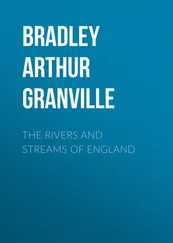Thomas Bulfinch - Oregon and Eldorado; or, Romance of the Rivers
Здесь есть возможность читать онлайн «Thomas Bulfinch - Oregon and Eldorado; or, Romance of the Rivers» — ознакомительный отрывок электронной книги совершенно бесплатно, а после прочтения отрывка купить полную версию. В некоторых случаях можно слушать аудио, скачать через торрент в формате fb2 и присутствует краткое содержание. ISBN: , Жанр: foreign_antique, foreign_prose, на английском языке. Описание произведения, (предисловие) а так же отзывы посетителей доступны на портале библиотеки ЛибКат.
- Название:Oregon and Eldorado; or, Romance of the Rivers
- Автор:
- Жанр:
- Год:неизвестен
- ISBN:http://www.gutenberg.org/ebooks/38774
- Рейтинг книги:3 / 5. Голосов: 1
-
Избранное:Добавить в избранное
- Отзывы:
-
Ваша оценка:
- 60
- 1
- 2
- 3
- 4
- 5
Oregon and Eldorado; or, Romance of the Rivers: краткое содержание, описание и аннотация
Предлагаем к чтению аннотацию, описание, краткое содержание или предисловие (зависит от того, что написал сам автор книги «Oregon and Eldorado; or, Romance of the Rivers»). Если вы не нашли необходимую информацию о книге — напишите в комментариях, мы постараемся отыскать её.
Oregon and Eldorado; or, Romance of the Rivers — читать онлайн ознакомительный отрывок
Ниже представлен текст книги, разбитый по страницам. Система сохранения места последней прочитанной страницы, позволяет с удобством читать онлайн бесплатно книгу «Oregon and Eldorado; or, Romance of the Rivers», без необходимости каждый раз заново искать на чём Вы остановились. Поставьте закладку, и сможете в любой момент перейти на страницу, на которой закончили чтение.
Интервал:
Закладка:
"An elk and a beaver are all that were killed to-day: the buffaloes seem to have withdrawn from our neighborhood. We contrived, however, to spread a comfortable table in honor of the day; and in the evening gave the men a drink of spirits, which was the last of our stock."
"July 15. – We find the prickly-pear – one of the greatest beauties, as well as one of the greatest inconveniences, of the plains – now in full bloom. The sunflower too, a plant common to every part of the Missouri, is here very abundant, and in bloom. The Indians of the Missouri, and more especially those who do not cultivate maize, make great use of this plant for bread, and in thickening their soup. They first parch, and then pound it between two stones until it is reduced to a fine meal. Sometimes they add a portion of water, and drink it thus diluted; at other times they add a sufficient proportion of marmow-fat to reduce it to the consistency of common dough, and eat it in that manner. This last composition we preferred to the rest, and thought it at that time very palatable.
"There are also great quantities of red, purple, yellow, and black currants. The currants are very pleasant to the taste, and much preferable to those of our gardens. The fruit is not so acid, and has a more agreeable flavor."
"July 18. – This morning we saw a large herd of the big-horned animals, who were bounding among the rocks in the opposite cliff with great agility. These inaccessible spots secure them from all their enemies; and the only danger they encounter is in wandering among these precipices, where we should suppose it scarcely possible for any animal to stand. A single false step would precipitate them at least five hundred feet into the river.
"The game continues abundant. We killed to-day the largest male elk we have yet seen. On placing it in its natural, erect position, we found that it measured five feet three inches from the point of the hoof to the top of the shoulder.
"The antelopes are yet lean. This fleet and quick-sighted animal is generally the victim of its curiosity. When they first see the hunters, they run with great velocity. If the hunter lies down on the ground, and lifts up his arm, his hat, or his foot, the antelope returns on a light trot to look at the object, and sometimes goes and returns two or three times, till at last he approaches within reach of the rifle. So, too, they sometimes leave their flock to go and look at the wolves, who crouch down, and, if the antelope be frightened at first, repeat the same manœuvre, and sometimes relieve each other, till they decoy the antelope from his party near enough to seize it."
"July 20. – During the day, in the confined valley through which we are passing, the heat is almost insupportable; yet, whenever we obtain a glimpse of the lofty tops of the mountains, we are tantalized with a view of the snow. A mile and a half farther on, the rocks approach the river on both sides, forming a most sublime and extraordinary spectacle. For six miles, these rocks rise perpendicularly from the water's edge to the height of nearly twelve hundred feet. They are composed of a black granite near the base; but judging from its lighter color above, and from fragments that have fallen from it, we suppose the upper part to be flint, of a yellowish-brown and cream color. Nothing can be imagined more tremendous than the frowning darkness of these rocks, which project over the river, and menace us with destruction. The river, one hundred and fifty yards in width, seems to have forced its channel down this solid mass: but so reluctantly has it given way, that, during the whole distance, the water is very deep even at the edges; and, for the first three miles, there is not a spot, except one of a few yards in extent, on which a man could stand between the water and the towering perpendicular of the mountain. The convulsion of the passage must have been terrible; since, at its outlet, there are vast columns of rock torn from the mountain, which are strewed on both sides of the river, the trophies, as it were, of victory. We were obliged to go on some time after dark, not being able to find a spot large enough to encamp on. This extraordinary range of rocks we called the Gates of the Rocky Mountains."
"July 29. – This morning the hunters brought in some fat deer of the long-tailed red kind, which are the only kind we have found at this place. There are numbers of the sandhill-cranes feeding in the meadows. We caught a young one, which, though it had nearly attained its full growth, could not fly. It is very fierce, and strikes a severe blow with its beak. The kingfisher has become quite common this side of the falls; but we have seen none of the summer duck since leaving that place. Small birds are also abundant in the plains. Here, too, are great quantities of grasshoppers, or crickets; and, among other animals, large ants, with a reddish-brown body and legs, and a black head, which build little cones of gravel ten or twelve inches high, without a mixture of sticks, and with but little earth. In the river we see a great abundance of fish, but cannot tempt them to bite by any thing on our hooks."
"July 28, 1805. – From the height of a limestone cliff, Capt. Lewis observed the three forks of the Missouri, of which this river is one. The middle and south-west forks unite at half a mile above the entrance of the south-east fork. The country watered by these rivers, as far as the eye could command, was a beautiful combination of meadow and elevated plain, covered with a rich grass, and possessing more timber than is usual on the Missouri. A range of high mountains, partially covered with snow, is seen at a considerable distance, running from south to west.
"To the south-east fork the name of Gallatin was assigned, in honor of the Secretary of the Treasury. On examining the other two streams, it was difficult to decide which was the larger or real Missouri: they are each ninety yards wide, and similar in character and appearance. We were therefore induced to discontinue the name of Missouri, and to give to the south-west branch the name of Jefferson, in honor of the President of the United States and the projector of the enterprise; and called the middle branch Madison, after James Madison, Secretary of State.
"July 30. – We reloaded our canoes, and began to ascend Jefferson River. The river soon became very crooked; the current, too, is rapid, impeded with shoals, which consist of coarse gravel. The islands are numerous. On the 7th of August, we had, with much fatigue, ascended the river sixty miles, when we reached the junction of a stream from the north-west, which we named Wisdom River. We continued, however, to ascend the south-east branch, which we were satisfied was the true continuation of the Jefferson."
"July 28. – We are now very anxious to see the Snake Indians. After advancing for several hundred miles into this wild and mountainous country, we may soon expect that the game will abandon us. With no information of the route, we may be unable to find a passage across the mountains when we reach the head of the river, at least such an one as will lead us to the Columbia. And, even were we so fortunate as to find a branch of that river, the timber which we have hitherto seen in these mountains does not promise us any wood fit to make canoes; so that our chief dependence is on meeting some tribe from whom we may procure horses.
"Sacajawea, our Indian woman, informs us that we are encamped on the precise spot where her countrymen, the Snake Indians, had their huts five years ago, when the Minnetarees came upon them, killed most of the party, and carried her away prisoner. She does not, however, show any distress at these recollections, nor any joy at the prospect of being restored to her country; for she seems to possess the folly, or the philosophy, of not suffering her feelings to extend beyond the anxiety of having plenty to eat, and trinkets to wear.
Читать дальшеИнтервал:
Закладка:
Похожие книги на «Oregon and Eldorado; or, Romance of the Rivers»
Представляем Вашему вниманию похожие книги на «Oregon and Eldorado; or, Romance of the Rivers» списком для выбора. Мы отобрали схожую по названию и смыслу литературу в надежде предоставить читателям больше вариантов отыскать новые, интересные, ещё непрочитанные произведения.
Обсуждение, отзывы о книге «Oregon and Eldorado; or, Romance of the Rivers» и просто собственные мнения читателей. Оставьте ваши комментарии, напишите, что Вы думаете о произведении, его смысле или главных героях. Укажите что конкретно понравилось, а что нет, и почему Вы так считаете.












